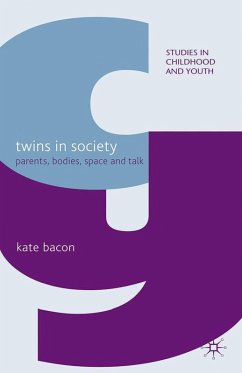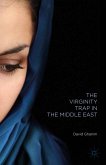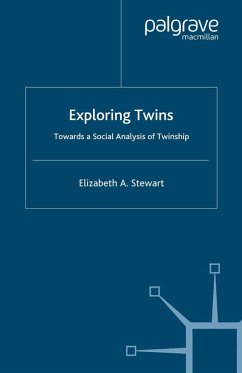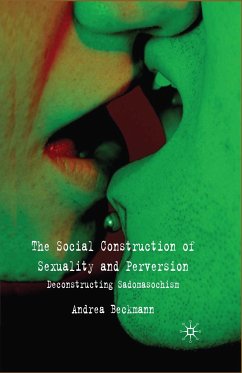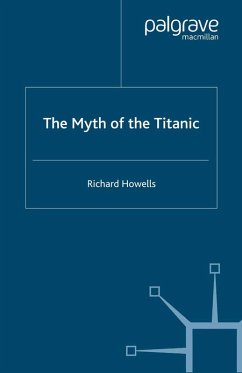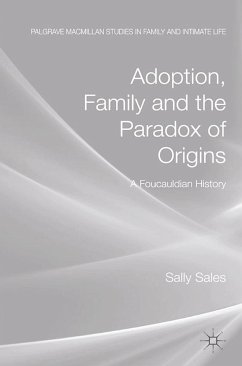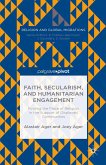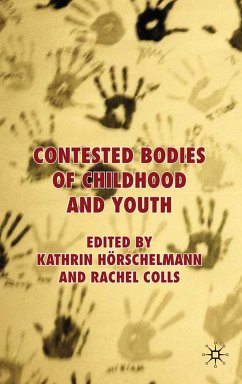Dieser Download kann aus rechtlichen Gründen nur mit Rechnungsadresse in A, B, BG, CY, CZ, D, DK, EW, E, FIN, F, GR, HR, H, IRL, I, LT, L, LR, M, NL, PL, P, R, S, SLO, SK ausgeliefert werden.
'This is a timely addition to the growing research on the sociology of siblingship. It is an accessibly written and comprehensive text which fills a gap by offering great insights into the social construction of twinship.' - Dr Samantha Punch, University of Stirling, UK
'At last, a sophisticated but accessible socio-culturally informed, life course analysis of twins and twinship. Bacon's study of British twins stands out from more traditional arenas of twin research with its sustained focus on twin and twins' identities as complex, sometimes contradictory social constructions. As a sociologist, Bacon incorporates multiple perspectives including those of parents, researchers, and different types of twins, themselves. Twins in Society makes a welcome and timely contribution to the twin research literature.' - Dona Lee Davis, Professor of Anthropology, University of South Dakota, USA

